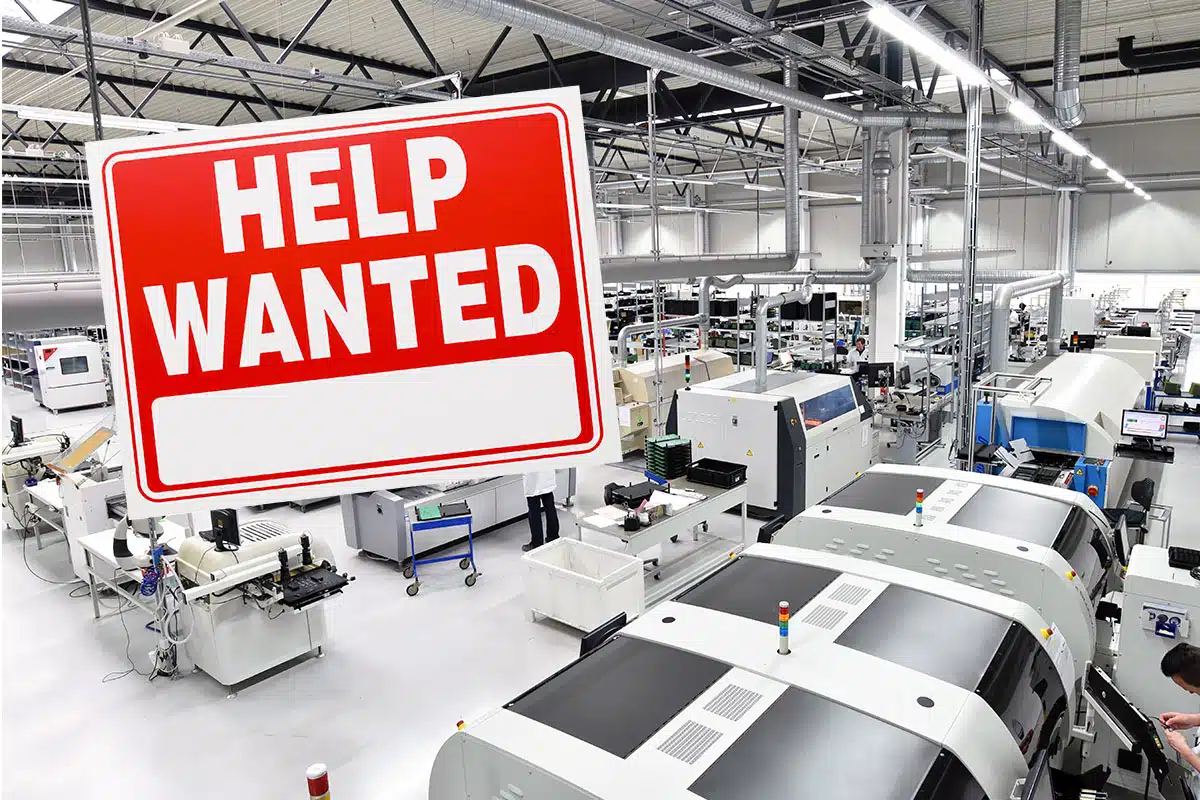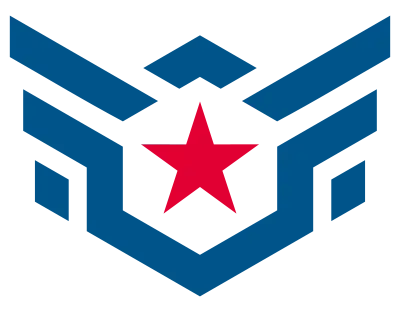PRIDE Industries VP of Workforce Inclusion spreads the word about National Disability Employment Awareness Month and the many contributions people with disabilities make to the workforce.
NDEAM 2023
In the face of a chronic labor shortage, some manufacturers are expanding their labor pool to include people with disabilities—and they’re striking gold. Learn how.
PRIDE Industries CGO shares the National Disability Employment Awareness Month story and the many contributions people with disabilities make to the workforce on the Sacramento radio show.
Two-thirds of working-age Americans with disabilities are unemployed. Learn about what employees with disabilities bring to the workforce in this interview with host Vicki Pepper celebrating National Disability Employment Awareness Month.
The nonprofit social enterprise was recognized for its commitment to building an inclusive workforce.
NEW YORK, NY – PRIDE Industries has just been named a 2023 Leading Disability Employer by the National Organization on Disability (NOD), earning the right to display the NOD Leading Disability Employer Seal. This important recognition, given once a year, spotlights the transformative contributions made by business leaders in promoting employment opportunities for individuals with disabilities. It also honors those organizations that prioritize diversity, equity and importantly, accessibility, setting a high standard for others to follow.
“As the nation’s leading employer of people with disabilities, we are honored to once again be recognized by the National Organization on Disability,” said Jeff Dern, President and CEO of PRIDE Industries. “PRIDE Industries has embraced inclusivity for more than five decades. And that’s why I can say with certainty that a diverse workforce is a strong workforce.”
Leading Disability Employer Seal recipients are determined based on data provided by companies on the NOD Employment Tracker™. The Tracker is the only free assessment tool that helps companies understand which employment practices correlate to improved talent outcomes related to hiring, retention and advancement of people with disabilities. It benchmarks organizations of any size in six disability and veterans’ inclusion focus areas, including strategy, talent outcome metrics, climate and culture, talent sourcing, people practices, and workplace tools and accessibility.
“Organizations like PRIDE Industries understand that by harnessing the talents of people with disabilities, they reap the benefits of a more innovative, diverse and dedicated workforce,” said NOD President Carol Glazer. “The Leading Disability Employer Seal honors organizations who have not only embraced inclusivity but have taken concrete steps to break down barriers for individuals with disabilities and create an environment for all to thrive.”
About PRIDE Industries
PRIDE Industries delivers business excellence with a positive social impact. A social enterprise, we provide facilities operations and maintenance services, custodial services, contract manufacturing, supply chain management, packaging and fulfillment services, and placement services to private and public organizations nationwide. Founded in 1966, PRIDE Industries’ mission is to create employment for people with disabilities. Through personalized employment services, we help individuals realize their true potential and lead more independent lives. PRIDE Industries proves the value of its inclusive workforce model through operational success across multiple industries every day.
About National Organization on Disability (NOD)
The National Organization on Disability (NOD) is a private, non-profit organization that seeks to increase employment opportunities for the 60-percent of working age Americans with disabilities who are not employed. To achieve this goal, NOD offers a suite of employment solutions, tailored to anticipate, and meet leading companies’ workforce needs. NOD has helped some of the world’s most recognized brands be more competitive in today’s global economy by building or enriching their disability inclusion programs. For more information about NOD and how its portfolio of professional services, Leadership Council and Employment Tracker™ can help your business, visit www.NOD.org.
Media Contact

Kat Maudru
PRIDE Industries is a social enterprise delivering business excellence to public and private organizations nationwide.
October is National Disability Employment Awareness Month and, amid the manufacturing skills gap—there aren’t enough skilled workers in the country—it’s a great opportunity to call attention to one of the most underused talent pools in the country—people with disabilities.
It’s no secret that labor shortages and high turnover rates continue to plague the manufacturing sector, with about 40 percent of employees calling it quits yearly, according to the Bureau of Labor Statistics—44 percent in 2020, 39 percent in 2021, and 40 percent in 2022. Turnover is a drag on productivity and the bottom line, with recruiting, onboarding, and retraining costing from $3,500 to $10,000 per employee.
According to the 2023 Career Advancement in Manufacturing Report, 82 percent of manufacturing companies are experiencing a labor shortage. The numbers don’t lie. Earlier this year, the U.S. Chamber of Commerce reported 693,000 open manufacturing jobs. Even more concerning: A study by Deloitte and the Manufacturing Institute found that the manufacturing “skills gap” could result in 2.1 million unfilled jobs, costing businesses a trillion dollars by 2030.
Diversifying Talent Pipelines to Ease the Manufacturing Skills Gap
Deloitte’s solution? Turn to underrepresented communities.
A landmark Accenture study found that companies that actively include employees with disabilities achieve 28 percent higher revenue, double the net income, and 30 percent greater profit margins than those that don’t.
“It is deeply concerning that at a time when jobs are in such high demand nationwide, the number of vacant entry-level manufacturing positions continues to grow,” said Paul Wellener, Deloitte vice chairman and U.S. industrial products and construction leader. “To attract a new generation of workers, the industry should work together to change the perception of work in manufacturing and expand and diversify its talent pipeline.”
Finding Hidden Labor Pools
When it comes to diversifying its talent pool, InterMotive Vehicle Controls in Auburn, California, is ahead of the game. Co-founders Linda and Greg Schafer were searching for an outsourcing partner to manufacture some of the company’s PCBAs in 2008 when they discovered PRIDE Industries, a contract electronics manufacturer with a mission to create employment for people with disabilities.
“The company’s capabilities blew me away,” Greg said. “The people, the processes, and the technology are state of the art. But what sets the company apart are the people—I’d never seen a manufacturing floor where employees were so happy to be there.”
Fast forward 15 years, and PRIDE Industries now manufactures 46 parts for InterMotive—24 cable assemblies and 18 mid to high-volume PCBAs. Services provided include functional testing of PCBAs, using custom test fixtures designed and built by PRIDE Industries engineers. Testing time has been reduced from about six seconds to 2.5 seconds, and returned boards have all but disappeared.
Retention Benefits
“We have directly hired people with disabilities and outsourced to PRIDE Industries’ teams for going on two decades now,” Linda said. “When you take someone with an intellectual disability or a physical disability, and assess their skills and interests, give them the training and support they need, you’ll be amazed at what they can do and how much they can contribute.”
Hiring people with disabilities helps InterMotive bridge the manufacturing skills gap and increase retention. “I have employees with disabilities who started after high school and are now married and buying homes,” Greg said. “They love their jobs, show up on time every day, and are proud of their work. They really enhance our workforce.”
But the story doesn’t end there. Coincidentally, one of InterMotive’s flagship products is a wheelchair interlock—a mechanism that immobilizes wheelchair-accessible vehicles when the wheelchair ramp deploys. “Some of our employees come to work in vehicles with our products on board,” Linda said, “products they may have helped build.” InterMotive is the largest manufacturer of wheelchair interlocks in North America.
A Vast Labor Pool
More than 10 percent of people aged 16–64 in the United States—22 million people—have a disability. The employment ratio for this population—the percentage who are employed—hovers around 30 percent, while the rate for persons without a disability in the same age group is about 75 percent.
But that’s changing, fast. In recent years, the employment-to-population ratio for people with disabilities has risen to record highs, reaching more than 37 percent, according to the monthly National Trends in Disability Employment (nTIDE) report, published by the Kessler Foundation and the University of New Hampshire.
Still, that leaves about 14 million people available for work.

Proven Benefits
The business benefits of a workforce that includes people with disabilities are proven, if not well known. A landmark Accenture study found that companies that actively include employees with disabilities achieve 28 percent higher revenue, double the net income, and 30 percent greater profit margins than those that don’t.
Research published by the National Institutes of Health found that the economic benefits of hiring people with disabilities include: lower employee turnover, greater long-term retention; increased reliability, punctuality, and productivity; and greater customer loyalty and satisfaction.
Low Risk, High Reward
One of the reasons some employers cite for not including people with disabilities is the added cost of reasonable accommodations that the Americans with Disabilities Act (ADA) requires. That myth is long busted. A survey of 3,528 employers by the Job Accommodation Network (JAN) found that 49.4 percent reported that accommodating employees with disabilities “cost absolutely nothing.” The other employers incurred an average one-time cost of just $300 per employee with a disability.
Meanwhile, the Society for Human Resources Management pegs the average cost of replacing an hourly worker at $1,500 each—far more than the cost of accommodating an employee with disabilities.
Keys to Success
Another reason some companies cite for not recruiting people with disabilities is simply a lack of knowledge about how to work with them. Again, this concern is unfounded, as the folks at InterMotive well know.
Keys to InterMotive’s success with employees with disabilities are consistent assessment, training, development, and feedback—processes the company has invested in for employees of all abilities for decades. “In many ways, these employees are just like any others that walk through our doors,” Linda said. “We identify their skills and interests, find the right role for them, and give them the training and support they need to be successful and find a career path here.”
InterMotive began hiring employees with disabilities long before DEI became trendy. “We aren’t doing this because someone told us we had to,” Greg said. “We’re doing it because it makes us a better business.” And he cautions companies against hiring from underrepresented communities simply to “check a box.” He said it requires investment, but once you make it, “you realize you are more alike than different.”
“They want to work. They want to contribute,” Linda said. “Their joy is a gift.”

Solve Your Manufacturing Skills Gap with PRIDE Industries
PRIDE Industries offers state-of-the-art facilities and a full suite of electronics manufacturing, packaging and fulfillment processing, and supply chain management services. And our inclusive workforce—about 50 percent of our employees have a disclosed disability—means that working with us allows you to make a positive social impact with your business spend, while meeting consumer demand for products made in the USA.
